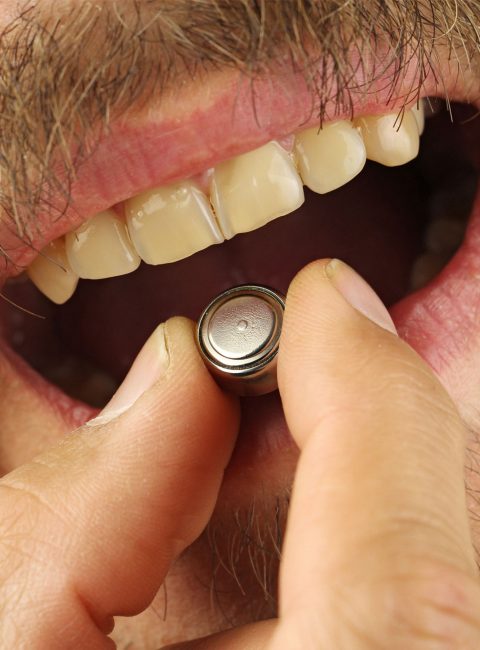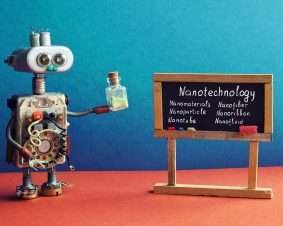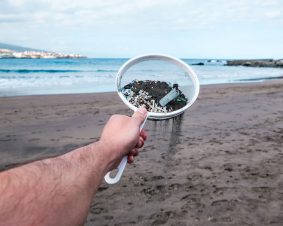 >
Spotlight May 2023: Dual energy – edible batteries
>
Spotlight May 2023: Dual energy – edible batteries
An Italian research group reports on edible batteries that supply electric current and can be digested as food, thus providing energy a second time. What sounds funny at first has a serious background, because in medicine, power sources are needed that could be transported through the digestive tract and possibly remain in the body unintentionally, e.g., for swallowable mini-cameras that could be used in gastroscopies and colonoscopies. If the battery materials are then digestible, there will be no problematic effects from the battery if it does not pass through the body quickly enough.
The battery presented is composed of dietary and nutritional supplements, and since all components are either digestible or pass through the body unchanged, they could actually be eaten. The authors did test the battery’s functionality, so it does provide electricity, but they did not eat their battery because the battery case was too large and not constructed of digestible materials, so more research is needed here.
Original publication:
Ilic, I. K., Galli, V., Lamanna, L., Cataldi, P., Pasquale, L., Annese, V. F., Athanassiou, A., Caironi, M., An Edible Rechargeable Battery. Adv. Mater. 2023, 2211400.

Weitere Spotlights
Spotlight December 2020: Rethinking Nanosafety – Part II
In December we would like to draw attention to the special issue: Rethinking Nanosafety – Part II in small. In the July Spotlight we already presented Part I. This special issue “Rethinking Nanosafety – Part II” also features research papers by renowned scientists in the field of nanosafety research. The first part of this special […]
Read moreSpotlight January 2022: Methods, models, mechanisms and metadata
For the new year, we are presenting no “classic” paper here, but would like to point out an editorial: Methods, Models, Mechanisms and Metadata: Introduction to the Nanotoxicology Collection at F1000 Research. This editorial introduces the F1000Research Nanotoxicology Collection, where best practices can be collected in the form of original research reports, including no-effect studies, […]
Read moreSpotlight August 2022: Three-stage model for the formation of micro- and nanoplastic particles.
Plastic pollution is a global problem that will continue to affect humanity for more than 100 years. There is the visible pollution, e.g. plastic debris in the environment, which leads to death for many animals (because they mistakenly think the plastic is food and eat it or because they get caught in the plastic waste). […]
Read moreSpotlight July 2021: The Path to Digital Material Research – It is never too late to start
Machine Learning, Artificial Intelligence, Big Data…. Have you read these words lately? No, these are not just buzzwords. The digitalisation of science is an evolving topic that is gaining importance with each passing day. That is why this month we would like to introduce you to the article “Digital Transformation in Materials Science: A Paradigm […]
Read more


